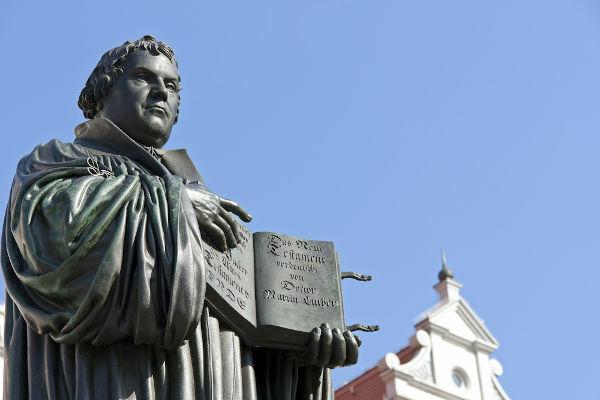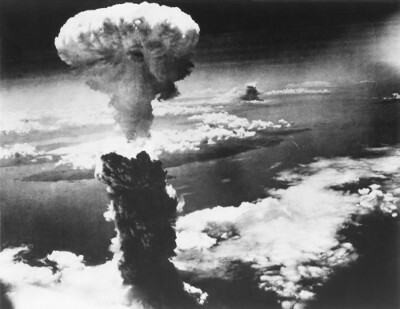THE remodelingProtestant was a reform movement started when Martin Luther wrote a document known as 95 theses. This reform was motivated by Luther's dissatisfaction with the practices and some theological principles practiced by the Church, being one of many such movements that have taken place in Europe since the beginning of the year. Middle Ages.
Luther's action was not intended to break with the Church, but such a break happened anyway as a reaction of that institution against the German monk. The Protestant Reformation started other religious reforms in Europe and was also driven by political and economic reasons.
Accessalso: Role of the Society of Jesus in the Counter-Reformation
Context of the Protestant Reformation
The Protestant Reformation took place in a context of great social, political, cultural and economic transformations in Europe. The shaping of Europe in medieval molds was in decline and new realities were emerging. It was a Europe that saw the trade develop and new political interests coming up.
It was a period of cultural change, as the Renaissance culture defended the idea of man at the center of all things as a way to break the great religious influence. The arts found new forms of expression and the scientific knowledge advanced. THE invention of the press, in the 15th century, was a crucial factor, as it ensured greater book production and expanded the circulation of ideas.
In the religious field, contesting the Catholic Church was a practice that had been going on since the middle of the Middle Ages. These religious movements questioned the lack of morality, abuse of power, avarice, corruption and every kind of deviation common in the Catholic Church in Europe. Some historians understand, for example, that the Waldenses, which emerged in France in the 12th century, were already a reformist movement.
Other highlights are JohnWycliff and JanHus, two names that questioned the practices of the Church in the 14th and 15th centuries, respectively. The criticisms made by both followed a similar path to Luther's: they questioned the accumulation of power and the excesses of Rome, criticized deviations from the teachings contained in the Bible, the sale of indulgences etc.
Causes of the Protestant Reformation

We understand that the Protestant Reformation was a reform movement started by Martin Luther in 1517. The context in which Luther was inserted is what helps us to understand why the movement initiated by the monk German have been successful, unlike other reform movements that have taken place, such as those already mentioned.
First, it is important to know what motivated Luther to speak out against the Church's current practices in that period. He was an Augustinian monk and professor of theology, therefore, he was a member of the clergy. Nevertheless, he did not agree with certain practices carried out in the 16th century, and his anxiety about this led him to take a stand.
Do not stop now... There's more after the advertising ;)
One of his biggest questions was about the sale of indulgences, practice in which the person offered money in exchange for forgiveness for their sins. His indignation was reinforced by the fact that Pope Leo X had offered indulgences to all who contributed financially to the construction of St. Peter's Basilica.
Luther also criticized the sale of ecclesiastical offices and the sale of sacred relics, both known as simony. Criticism of him was given because the idea that moved him, theologically speaking, was the gratuitousness of faith, that is to say that he did not believe that works, such as paying for the pardon given by the pope, guaranteed a person's salvation, but what only faith would guarantee salvation.
Dissatisfaction with practices and the theological debate about salvation were the central factors that led the monk to take a stand. The movement that Luther started did not aim at separation from the Church, but its moralization. It turns out that what was started by Luther made possible changes in the political and economic spheres.
That is why, in order to understand the Protestant Reformation, it is not enough to analyze Luther's motivations. We need to understand the historical context and interests that led many to support the German monk. Something we have already mentioned here is the role of the press in spreading Lutheran ideas. Through this instrument, his writings spread throughout Europe and spurred reactions against the Church.
Politically the Church still represented a great force, as the consolidation of monarchs' power depended on papal approval. In this sense, having the support of the pope guaranteed a very large influence, both internally and externally. The big question is that the 16th century was a time when the political demands and interests of each kingdom began to become more complex.
This situation is related to the process of formation of national states it's from centralization of power. The political agendas of the formed states were very broad, and, for the most part, the interests of the kings of these places did not meet the interests of the pope. In this sense, many nobles supported Luther's reform because they identified in it potential for the weakening of the Church, which could guarantee them greater autonomy.
That greater political autonomyit also meant greater economic autonomy. for these kingdoms, as it guaranteed the end of taxes paid to the Church. In the German context, the reform was also embraced because the great amount of resources and possessions that the Church possessed was faced with indignation, mainly because some regions of the holy empire they were quite poor.
Accessalso: What was the Gregorian reform?
Luther and the 95 theses
We can see that the context of the Protestant reform was complex and that this movement was not limited to an event in the ecclesiastical field. He influenced and was influenced by different economic and political interests. In any case, the central impulse was Luther's indignation, and this made him elaborate the well-known 95 theses.
Also known as "Dr. Martin Luther's Dispute on the Power and Efficacy of Indulgences”, the 95 Theses were a letter written by the German monk in which he talked about indulgences. It was sent, on October 31, 1517, to Alberto de Mainz, the Archbishop of Mainz.

It became popular in the tradition of the Protestant Reformation that Luther, in a show of indignation, would have fixed his theses on the door of the Church of Castle Wittenberg. This act would have been the trigger that started the reform, however, historians have no evidence that it actually occurred.
What matters is that Luther's theses gained notoriety and soon began to be reprinted and sent to all corners of Europe. As stated, Luther did not wish to break with the Catholic Church, but things were not under his control and the uncompromising reaction of the Church led to this break anyway.
Luther's ideas were strongly embraced by many in the Holy Empire, and the The basis of Lutheran theology is the idea that "the just shall live by faith". Thus, it is not good works that guarantee a person's salvation, but his faith. As for indulgences, he questioned them in his theses saying:
"Since, with indulgences, the pope seeks the salvation of souls rather than money, why does he suspend the letters and indulgences once granted, if they are equally effective?"|1|.
The theological construction developed by Martin Luther can be summarized in the principles known as fivesoles, core beliefs of Protestant theology:
Solefide (only faith)
Solescript (only the deed)
Soluschristus (only Christ)
Solegraciousness (only grace)
SoliOf theglory (Glory only to God)
Throughout his life, Luther still translated the Bible into German, and his actions gave rise to Protestantism. After Luther, other branches of Protestantism developed. In France, for example, John Calvin proposed a direct break with the Catholic Church, in addition to believing in a principle known as double predestination.
Accessalso: Cathar Heresy - One of the Greatest of the Late Middle Ages
church reaction
The Catholic Church did not approve of Luther's criticisms. O Pope Leo X, for example, issued a bull demanding that the monk recant, but the monk burned the papal bull in a demonstration that he would not bow to the pressure of Rome. The following year, the pope still excommunicated Luther, which meant he was excluded from the Catholic Church.
Luther still had to take a stand against temporal power, since the emperor of the Holy Empire, Carlos V, called the Worms Diet, a kind of assembly, for Luther's ideas to be debated. Luther was present at this event, defended his writings and ideas, and was considered a heretic. This forced him to hide for a year in Wartburg Castle as a way to protect his life.
In the 1540s, the Pope Paul III summoned the Council of Trent, event that organized the counter-reform, the Church's reaction movement against the growth of Protestantism. This reaction created criteria for a more rigorous formation of clergy members and determined that certain books had their circulation prohibited.
The reaction of the Catholic Church managed, in part, to stop the advance of Protestantism, but in places like Germany, Denmark, Sweden, Netherlands, Switzerland, England and Switzerland, this religious strand managed to conquer a lot space.
Note
|1| 95 theses of Luther. To access, click on here.
By Daniel Neves
History teacher
“The preachers of indulgences are wrong when they say that by the indulgences of the pope man is freed from all sin and saved. (...) Christians must be exhorted to expect to enter heaven more through true penance than through illusory tranquility.” - Luther
“God calls each one to a particular vocation whose aim is the glorification of himself. The trader who seeks profit, for the economic qualities that economic success requires: work, sobriety, the command also responds to the call of God by sanctifying the world by his effort, and his action is holy.” - Calvin
In: VICENTINO, Claudio. General History, São Paulo, Scipione, 1997.
a) Identify the movement that promoted the dissemination of these ideas.

